Solomon Islands PM asking Australia for help is a good sign
It’s not technically China or Australia’s fight to have but both countries are involved for very different reasons. And this week it stepped up a notch.
The Solomon Islands’ Prime Minister isn’t exactly enamoured with Australia. He’s attacked Canberra’s climate stance. He’s criticised its international relations policies. And he’s described Beijing as a way of gaining leverage over “traditional partners”.
But, when push came to shove, Manasseh Sogavare called Australia for help.
Parts of the Chinatown district in Honiara on Solomon Islands are on fire as rioters torched buildings in the capital in a second day of anti-government protests amid lockdown orders. Australia confirmed it has placed peacekeepers don't the ground to help.#cgtnamericapic.twitter.com/yV7erkGXTZ
— CGTN (@CGTNOfficial) November 25, 2021
It came after rioters attacked the Solomon Islands parliament and Chinatown districts on Wednesday, venting frustration at the government’s domestic economic performance and decision to switch diplomatic relations from Taiwan to China.
With local police retreating to barricade Honiara’s city centre, Prime Minister Sogavare responded by calling upon Australia.
And Head of the National Security College at the Australian National University Professor Rory Medcalf says that’s a significant victory for Canberra’s Pacific Partnership strategy.
“I think it’s a good sign for Australia that, no matter what the rhetoric, our friends in the Pacific, know that they can rely on us,” he told news.com.au on Friday. “They know that they can rely on Australia even if they have been critical of Australia.”
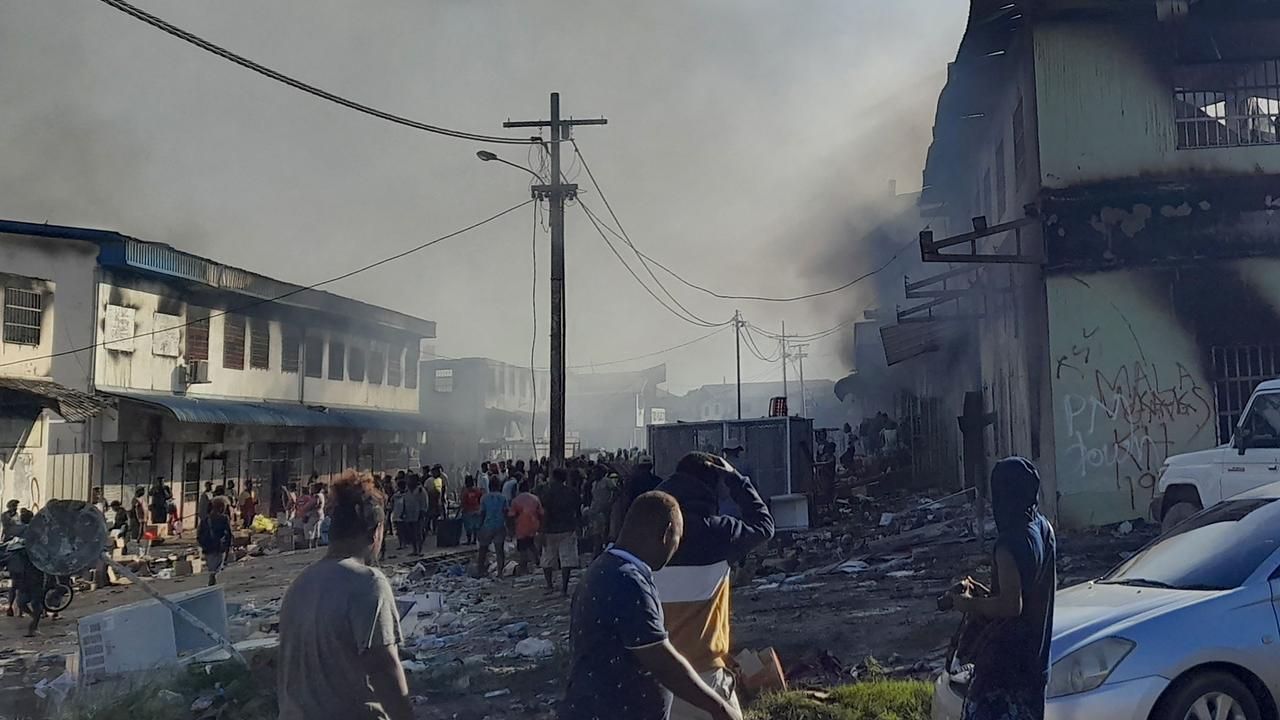
It’s a significant blow to Beijing’s narrative that it is the only regional power with the interests of smaller nations such as the Solomon Islands at heart.
When Foreign Ministry spokesman Zhao Lijian addressed the attacks on Chinese citizens, he didn’t mention Australia’s role in restoring order.
China is closely following the latest developments in the #SolomonIslands. We support the government’s efforts to end violence and chaos. All attempts to disrupt the development of relations between China and the Solomon Islands are just futile. pic.twitter.com/hMhMHaUMf5
— Lijian Zhao èµµç«‹åš (@zlj517) November 25, 2021
“Presumably, the Chinese will be very reluctant to give Australia any credit,” says Professor Medcalf. “This goes against China’s narrative that Australia does not do anything good for China in the region. But the awkward fact for China is that we will see Australian forces protecting Chinese interests on the streets of Honiara”.
And that, he says, is because it’s not all about Beijing. “Australia is getting involved regardless of the China factor. We would have done this anyway.”
Prime Minister Scott Morrison on Thursday announced the deployment of some 120 police and soldiers to help restore peace. The first boots were on the ground the following day.
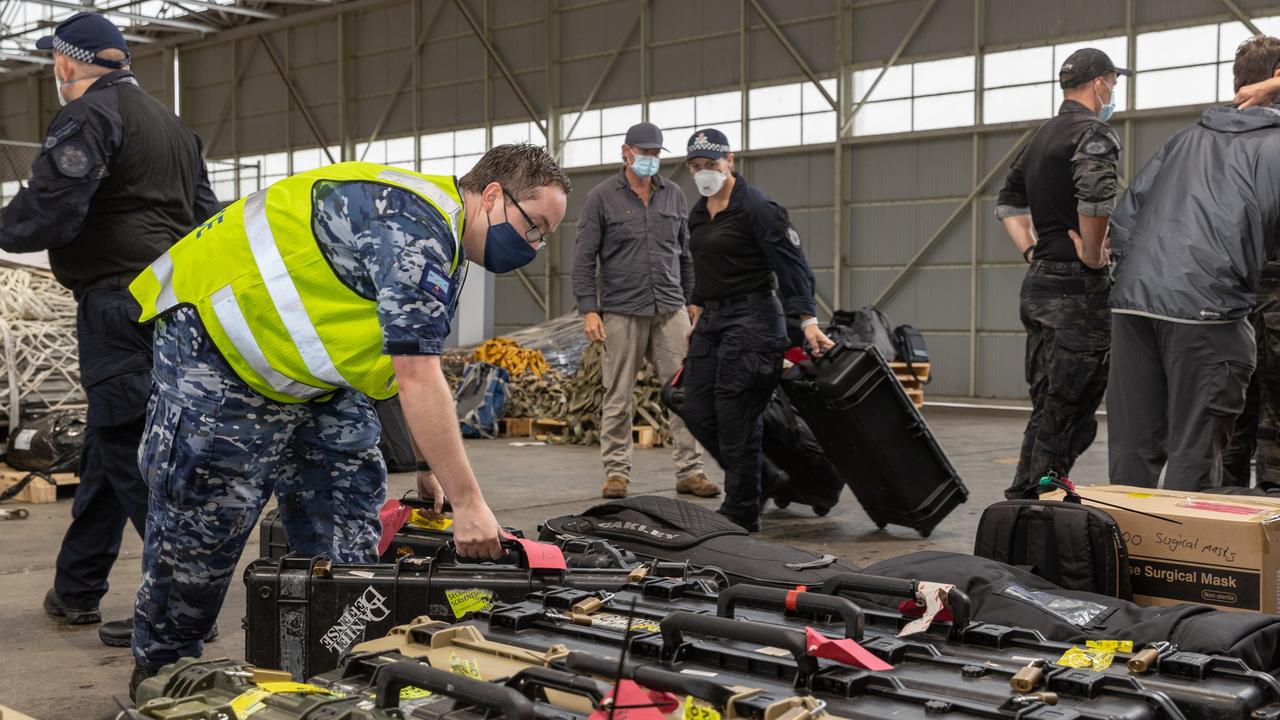
It’s not the first time they’ve been there.
An Australian-led force intervened in the Solomon Islands in 2003 after a six-year battle between rival ethnic groups centred on the islands of Malaita and Guadalcanal claimed more than 200 lives. It did so again in 2006 after rioters looted and destroyed Chinese-owned businesses amid allegations they had rigged the election of then-prime minister Snyder Rini.
Ultimately, Australia remained in the Solomons until 2017 at a cost of some $2.6 billion.
Of friends, family and international feuds
Prime Minister Sogavare is well versed in Beijing’s talking points.
He defends his government’s decision to abandon its recognition of Taiwan in favour of mainland China. “It puts the Solomon Islands on the right side of history, and it is in line with international law,” he said.
He blames “external factors” for the civil unrest and attacks on the Chinese community.
“These very countries that are now influencing Malaita are the countries that don’t want ties with the People’s Republic of China,” he said. “I don’t want to name names. We’ll leave it there. We know who they are.”
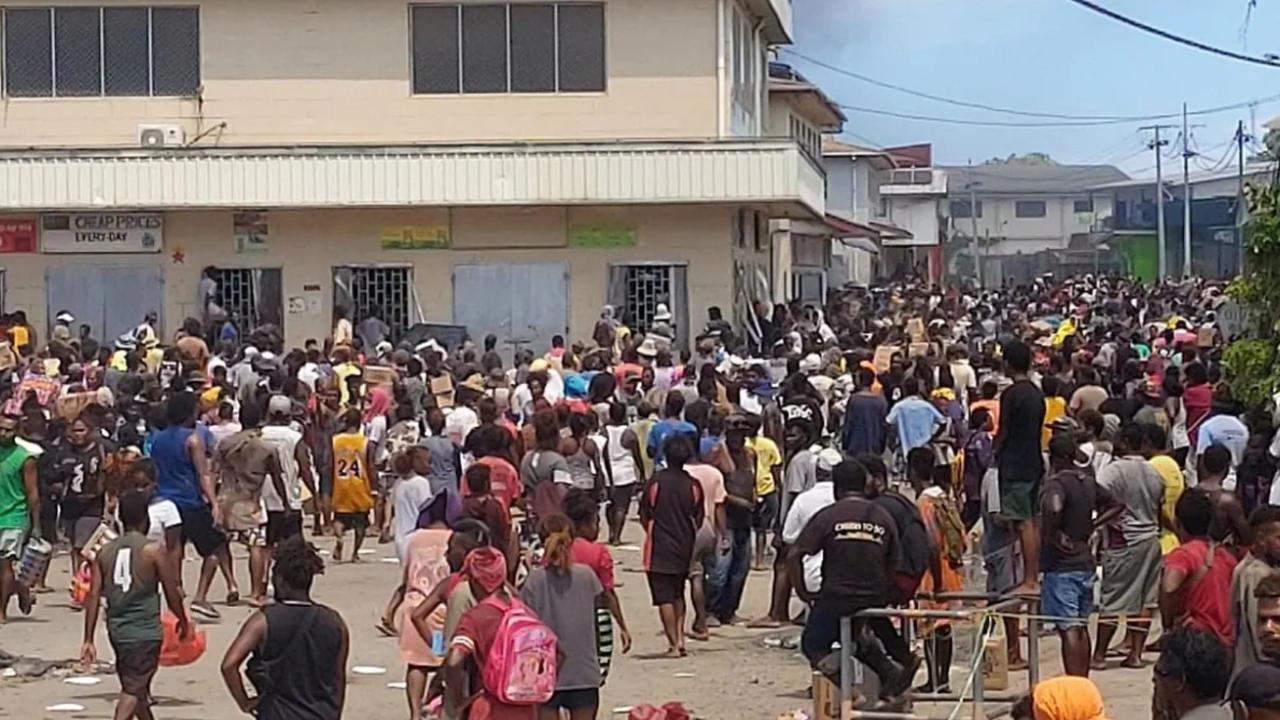
But Sogavare thanked Canberra – despite its outspoken criticism of Beijing’s coercion tactics – for being his nation’s “best friend”.
“On behalf of the people of the Solomon Islands, I just want to thank the people and the government of Australia for coming to our aid.”
“I feel sorry for my people in Malaita because they are fed with false and deliberate lies about the switch (to Beijing),” Sogavare told the ABC on Thursday. “That’s the only issue, the only issue, and unfortunately, it is influenced and encouraged by other powers,” he said.
Relationships matter in the Pacific.
And that’s both a benefit and a challenge for Prime Minister Sogavare, says ANU director of the Australia Pacific Security College Professor Meg Keen.
“There’s a lot of history with Taiwan,” she says. “The Solomon Islands have had a 36-year association with Taipei that provided aid, assistance and rural development projects.”
But Prime Minister Morrison contradicted Sogavare. “They are domestic expressions,” he said of the riots. “They are not the result of the actions of, to the best of our knowledge, of any other agency outside of the Solomon Islands.”
Professor Medcalf agrees.
“There are local tensions. There are local grievances that would exist regardless of the China Taiwan factor. And Australia is getting involved regardless of the China factor. We would have done this anyway – even if there wasn’t a perception that China is taking a powerful role in the Pacific.”
Caught between narratives
Respect. Sovereignty. Rules-based order. All are key debating points between Beijing and the West.
Ultimately though, Professor Medcalf says, it’s all about trust.
“It really goes to that family theme the Prime Minister talked about. In a family, you can criticise. You can complain. But, in the end, you can still rely on them. So I think that’s a pretty powerful narrative.”
Australia has maintained its longstanding relationship, despite Honiara’s internal politics.
Search-and-rescue. Fishing surveillance. Training. Material support.
“We’ve had a steady record of security support to our Pacific neighbours,” Medcalf says. “The Pacific patrol boat program, for example, has been going for many years. And this stuff is unglamorous. It’s not generally in the headlines. It’s just it just happens through long-established relationships. But it puts us in a strong position. It also makes us uniquely placed to help.”
But the availability of credit under Beijing’s “Belt and Road” international development project is enticing to cash-strapped nations such as the Solomons.
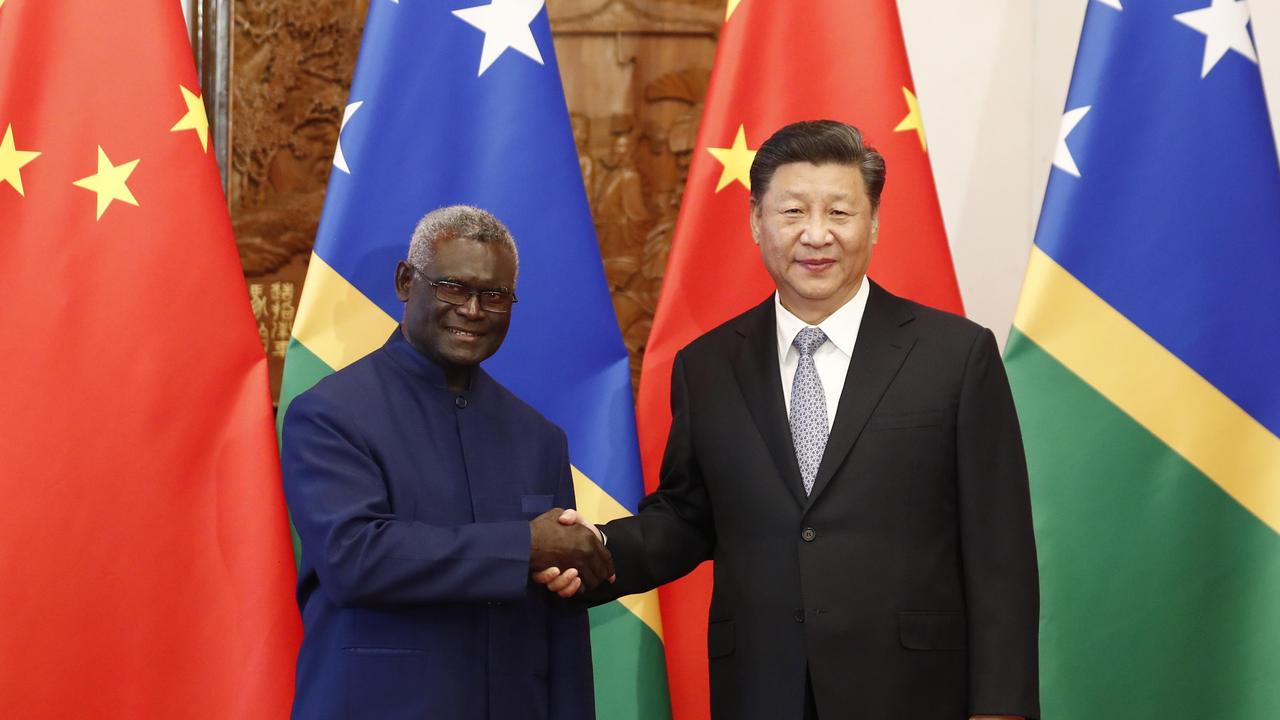
“There are all sorts of claims about how much money was promised, some as high as $A695 million in assistance. Whatever the amount, it was substantial from a Solomons Islands perspective,” says Professor Keen.
To access that cash, however, requires signing up to Beijing’s agendas. And everything is always contingent on curtailing all ties with Taiwan.
“China has used the Solomon as an extension of its global effort to squeeze Taiwan’s diplomatic space,” says Professor Medcalf. “I’m not trying to say this was invented by Chinese pressure. But it’s dangerous when that pressure is applied in ways that disregard the sensitivities of local communities.”
It’s a risk Sogavare has embraced before. “When it comes to economics and politics, Taiwan is completely useless to us,” he proclaimed earlier this year.
Solomon Island opposition figures, however, are angered by the shift in allegiance.
Last month, opposition MP Peter Kenilorea Jr accused his country’s foreign policy of being “overrun” by China. He warned that tensions over Beijing’s influence could lead to a sudden explosion of violence.
He was right.
The heart of the matter
The feud between Beijing and Taipei is dominating the Solomon Islands debate.
But Professor Keen says that there have been tensions between ethnic groups, particularly Malaita and Guadalcanal, for a long time. And then there are fears about the fair distribution of development funds, and government accountability.
Not to mention the growing exploitation of resources by foreign firms.
The archipelago of nearly a thousand islands sits some 3300km northeast of Australia. Its population of 710,000 are mainly farmers and fishers.
Malaita is the most populous island with 160,500 inhabitants. The capital of Honiara is on the largest island, Guadalcanal, some 50km away.
Malaita premier Daniel Suidani blames Sogavare’s government for lack of progress in reconciliation and economic development.
Suidani has accused the government of attempting to buy his support. He’s also been vocal in criticising the motives behind Beijing’s investment.
Instead of aid, education and agricultural programs, Beijing is offering to fund big infrastructure projects. And that has made Suidani suspicious.
“Malaita has always been the poor cousin to Guadalcanal,” says Professor Keen. “That’s where the capital exists, where the gold mine and oil palm plantations are, and where the large stadium that the Chinese have promised will be built. But the national government argues other investments will provide benefits beyond Guadalcanal.”
The premier of Malaita is not yet convinced. Despite Honiara’s official switch to Beijing in 2019, Taipei has continued to supply aid to Malaita island. Earlier this year, it donated a shipment of Covid-19 vaccines.
“So Suidani has said he will remain committed to Taiwan. There’s a direct and immediate benefit,” explains Keen. “From his perspective, he has concerns about whether the China deal will benefit his people. In contrast, Sogavare argues that national interests will best be served by the recognition of China and the significant economic benefits which will flow. Most Pacific island countries have taken a similar position.”
Many in the Solomon Islands share Sogavare’s views. But other incidents have raised islander ire – such as when Beijing attempted to lease the island of Tulagi in its entirety.
“Fairly, or not, there’s long been underlying tensions with the Chinese community. It’s not the first time Chinatown has come under attack,” adds Keen. “External interventions can help to bring peace and calm, but the long term solution will have to be internally led and implemented.”
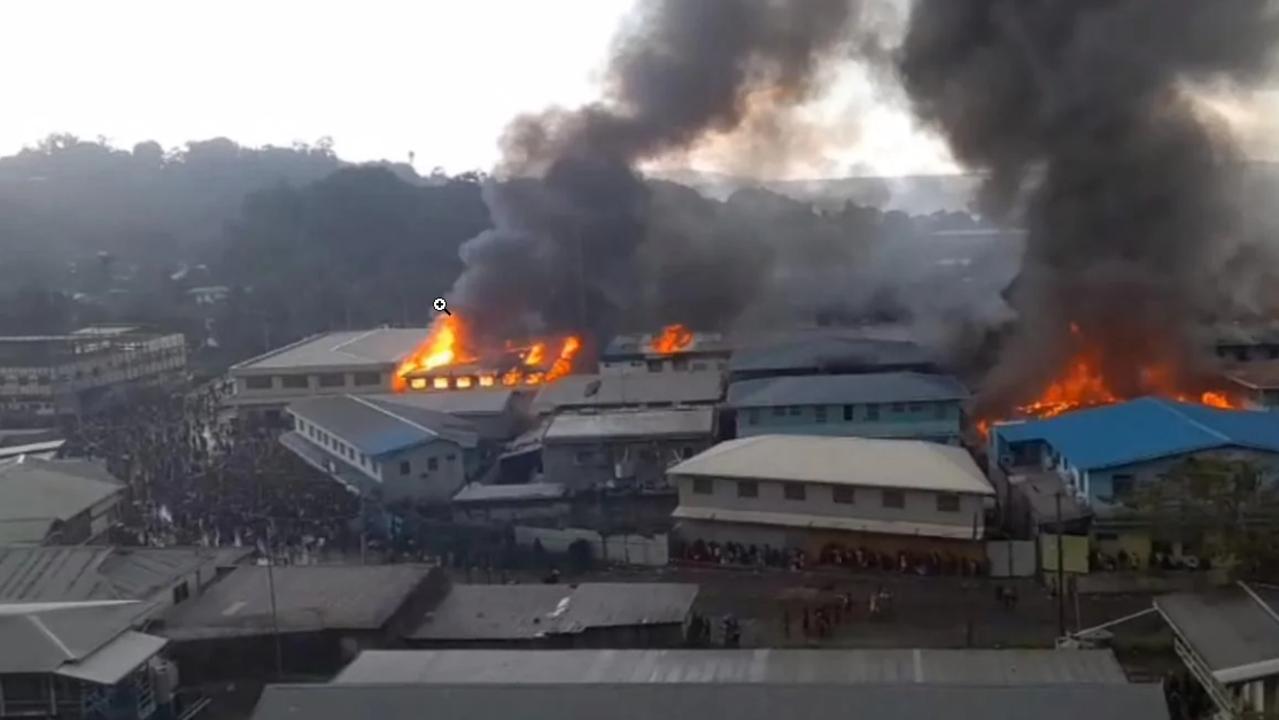
A demonstration of commitment
Solomon Islands Opposition Leader Matthew Wale this week called on Sogavare to resign. Sogavare sees no reason to do so.
“That guy is right behind all that is happening … he encouraged the people of Malaita to come over to Honiara to disturb our parliament,” he said. “I am not going to bow down to anyone. We are intact, the government is intact, and we are going to defend democracy.”
Prime Minister Morrison said the deployment of Australian police and troops was a response to treaty obligations.
“I want to stress that our purpose here is to provide stability and security to enable the normal constitutional processes within the Solomon Islands,” he said. “It is not the Australian government’s intention to intervene in any way in the internal affairs of the Solomon Islands.”
Professor Keen, however, warns that there is unlikely to be a quick solution.
“It may take just a few weeks to restore calm,” she says. “But how long does it take to know that that calm can be sustained? When is the right time to pull out? I think that’s going to be a pretty tough question for us”.
Professor Keen added she has confidence in Honiara’s resilience.
The suddenness of the riots, she says, caught local authorities off guard. “They can get back on top of the situation, I think, and get this under control. But the underlying concerns are going to persist for some time. They’re not easily resolved.”
Professor Medcalf says Pacific relations is a long game for Canberra. And the Solomon Islands is a significant demonstration of Australia’s commitment to the region.
“If Australia did not get involved, then that would increase the internal pressure in China to extend its forces into the Pacific,” he adds. “So, again, it’s another very good reason for Australia to play this steady role that we’re playing.”
In the Solomons, Australia is helping protect China’s interests – to protect its own.
“That is a reasonable and sensible outcome,” Medcalf says. “And even if the Chinese don’t publicly acknowledge it, privately they will be aware of that. In many ways, Australian forces will be helping to manage the consequences of the pressure that China has been applying in the Solomons in recent years. And again, I don’t expect the Chinese to acknowledge this publicly. But the region and the world will quietly notice.”
Jamie Seidel is a freelance writer | @JamieSeidel




